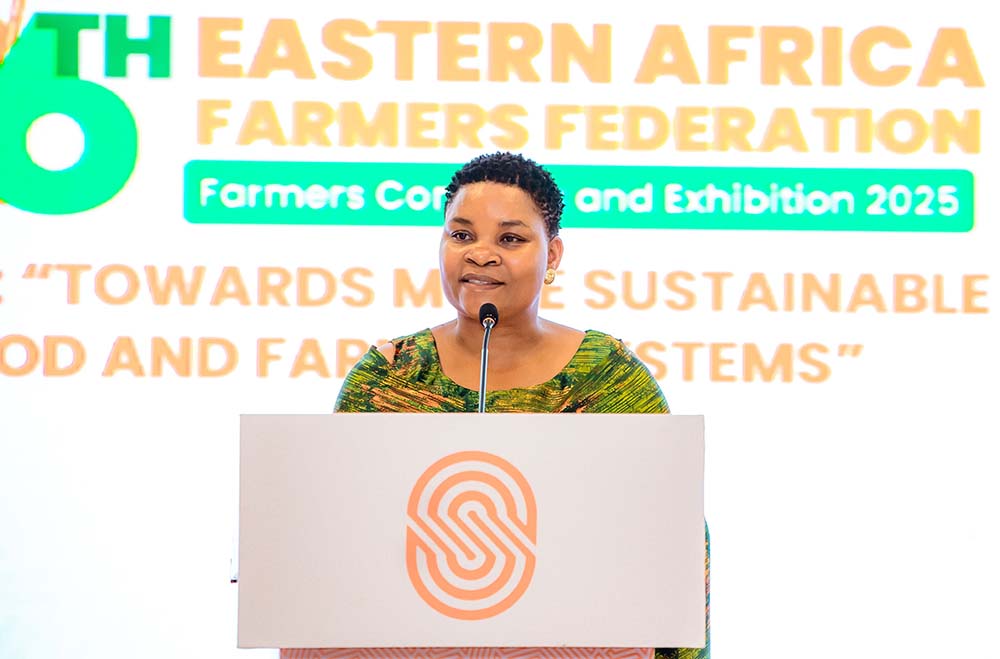Stakeholders call for urgent interventions to safeguard EAC’s agriculture systems
EAFF President Elizabeth Nsimadala opened the congress saying: The East African Community’s agriculture systems face unprecedented threats, from climate shocks to unsustainable trade practices. We must act now to protect our food security and economic independence.”
Key speakers at the 6th Eastern African Farmers Federation Congress.
The surge in food imports into East Africa, now costing nearly $70b (about shillings 242.55 trillion) annually, is eroding regional food sovereignty and sparking urgent calls for action.
At the September 30-October 2, 2025, 6th Eastern African Farmers Federation (EAFF) Congress in Kigali, Rwanda, experts and leaders are warning that without transformative policies and investments, climate change, trade imbalances and systemic gaps will further destabilise the region’s agricultural future.
EAFF President Elizabeth Nsimadala opened the congress saying: The East African Community’s agriculture systems face unprecedented threats, from climate shocks to unsustainable trade practices. We must act now to protect our food security and economic independence.”
The event, themed Towards a More Sustainable Food and Farming Systems, brought together stakeholders to address how to reverse the region’s reliance on imported food.
Nsimadala highlighted the African Development Bank’s alarming figures: Africa spends $100 billion annually on food imports, with East Africa accounting for nearly three-quarters of that sum.
“Current systems are no longer sustainable,” she said. 
Nsimadala Making Her Presentation
“Climate change, urbanisation, and policy failures are pushing us toward a crisis. We need bold measures, like the CAADP Kampala Declaration [the strategic framework for delivering on Africa's goal for inclusive and sustainable development], to redirect investments and prioritise local production.”
The Congress emphasised the need for systemic overhauls. Head of policy and advocacy at AGRA Boaz Keizire, urged a radical shift in spending: “Why pour $70 billion into imports when we could invest in our own farmers?”
He called for policies that empower smallholder producers, who form the backbone of East Africa’s agriculture.
Climate resilience emerged as a key theme. Sara Mbago-Bhunu of IFAD stressed the urgency of political will and partnerships: Smallholder farmers face climate disasters, degraded land, and limited markets. We must bridge these gaps through inclusive policies and climate-smart technologies.
Participants pledged to push for concrete outcomes by the Congress’s end, including:
• Youth and gender inclusion: Boosting opportunities for young people and women in agriculture.
• Innovation scaling: Expanding access to climate-resilient practices and technologies.
• Stronger partnerships: Uniting governments, the private sector, and regional bodies to address inefficiencies.